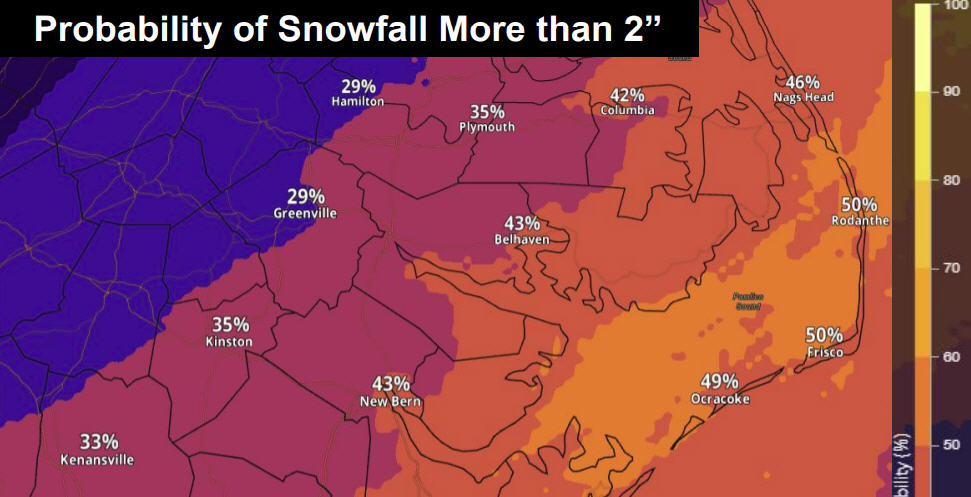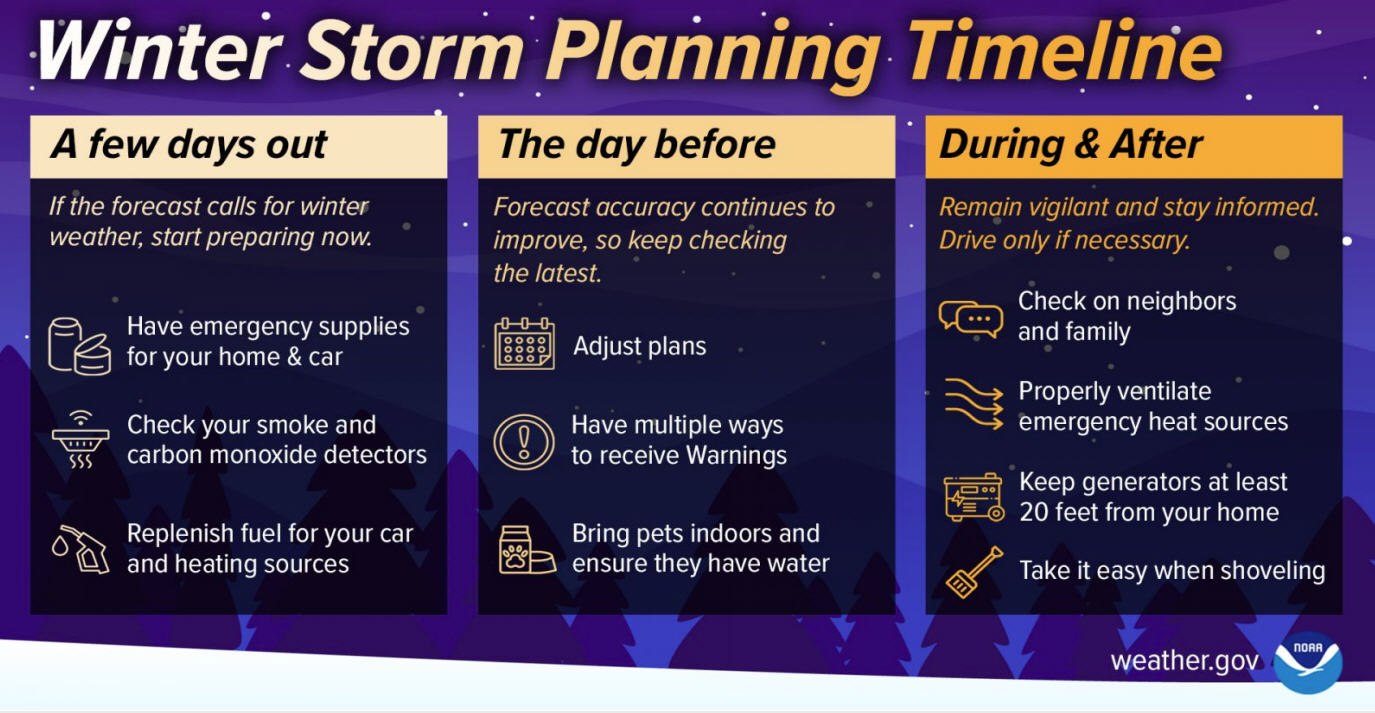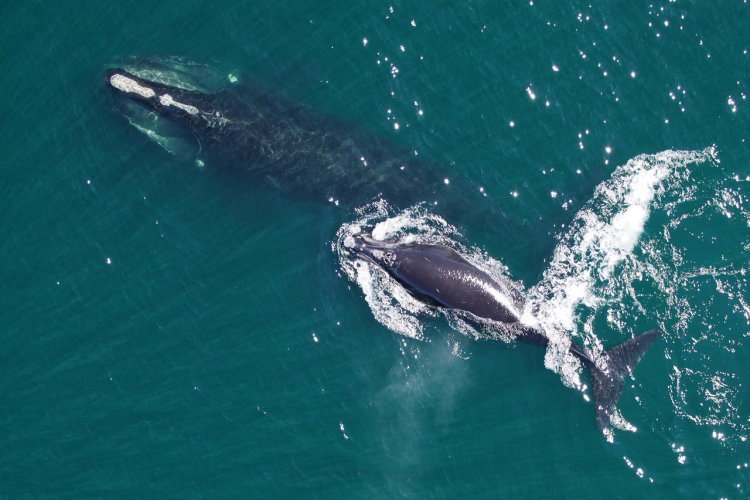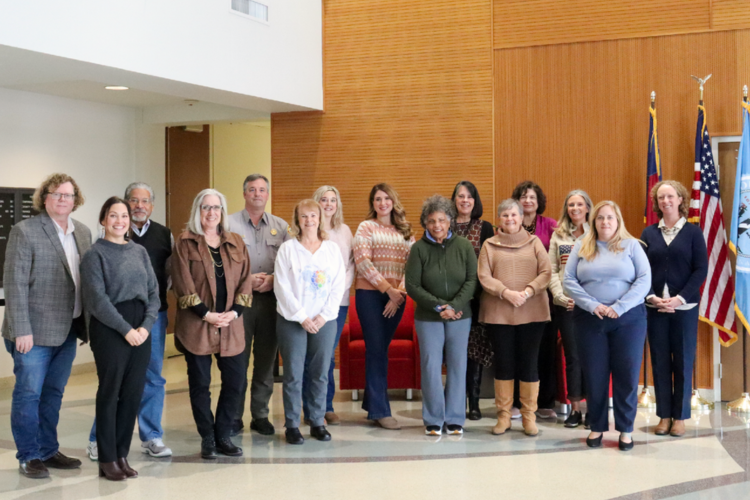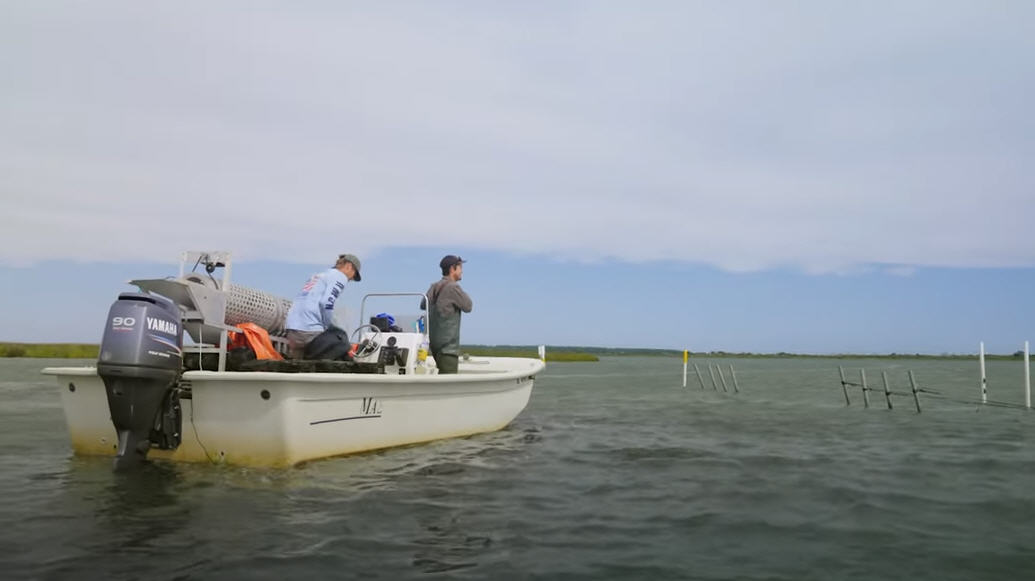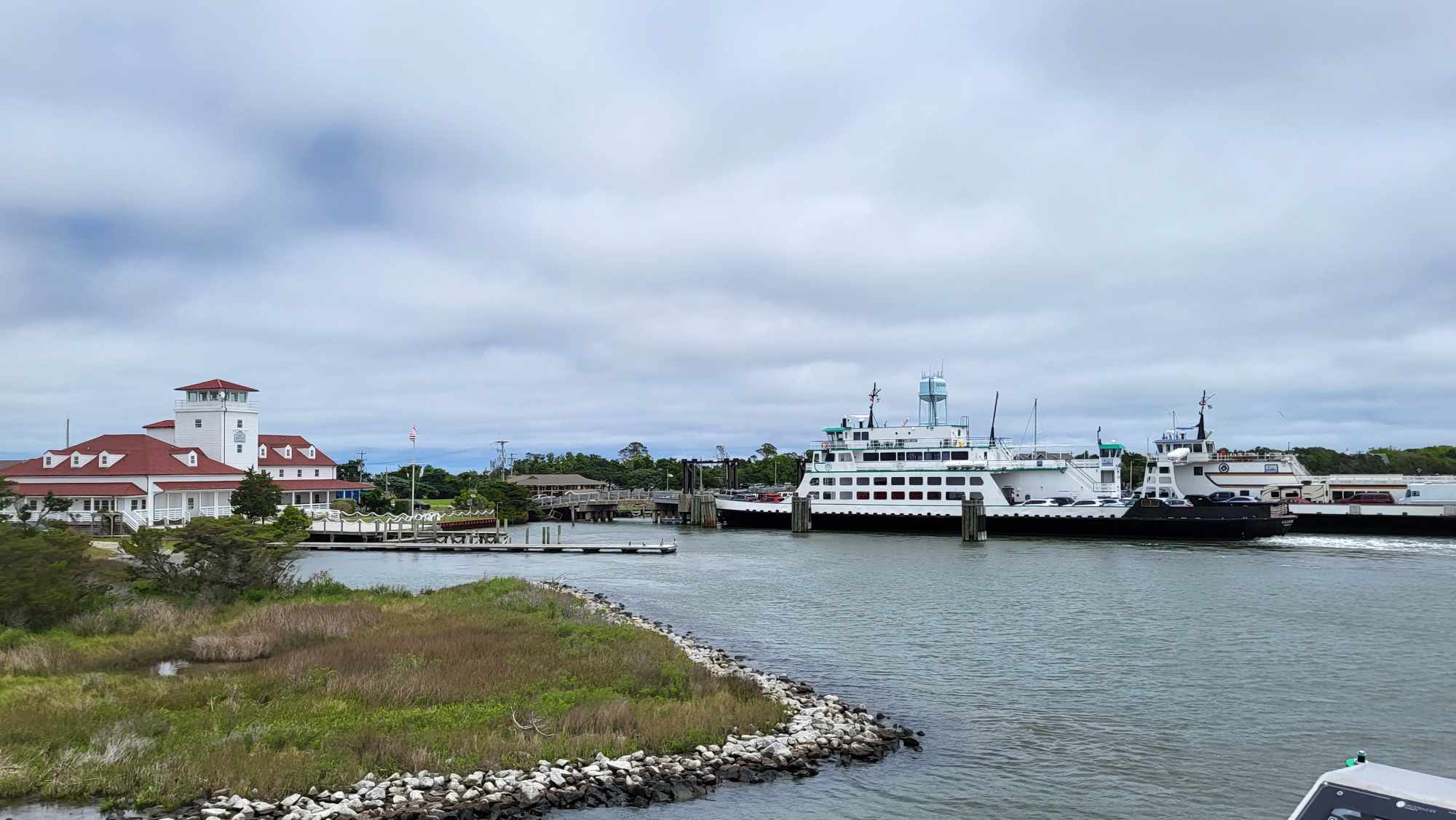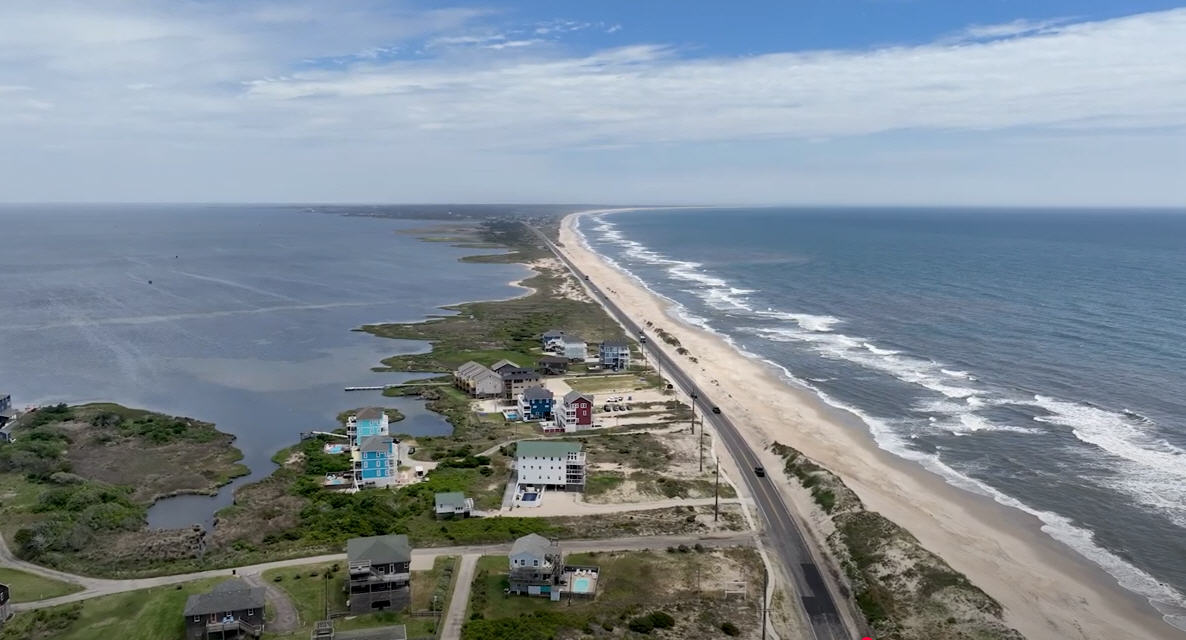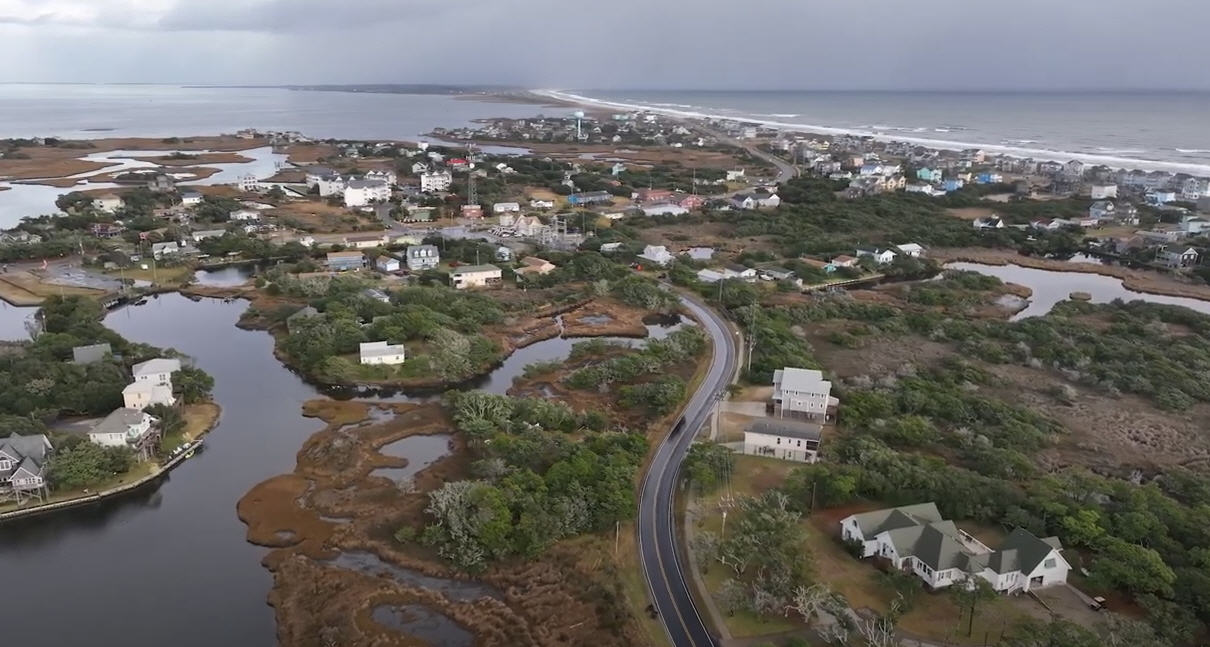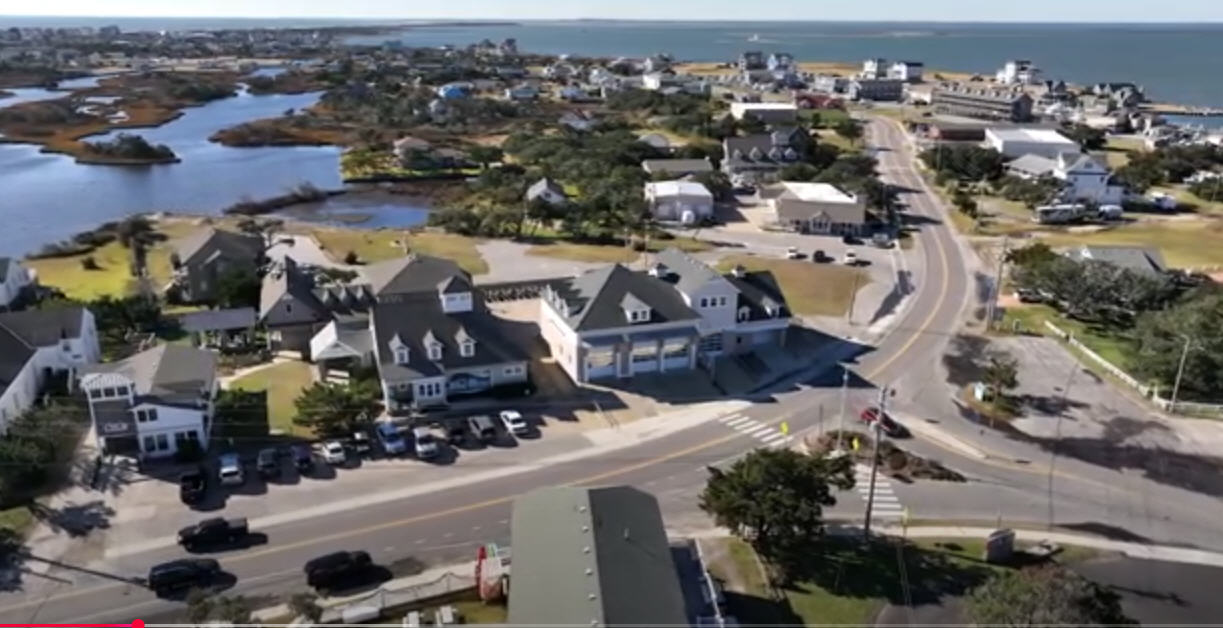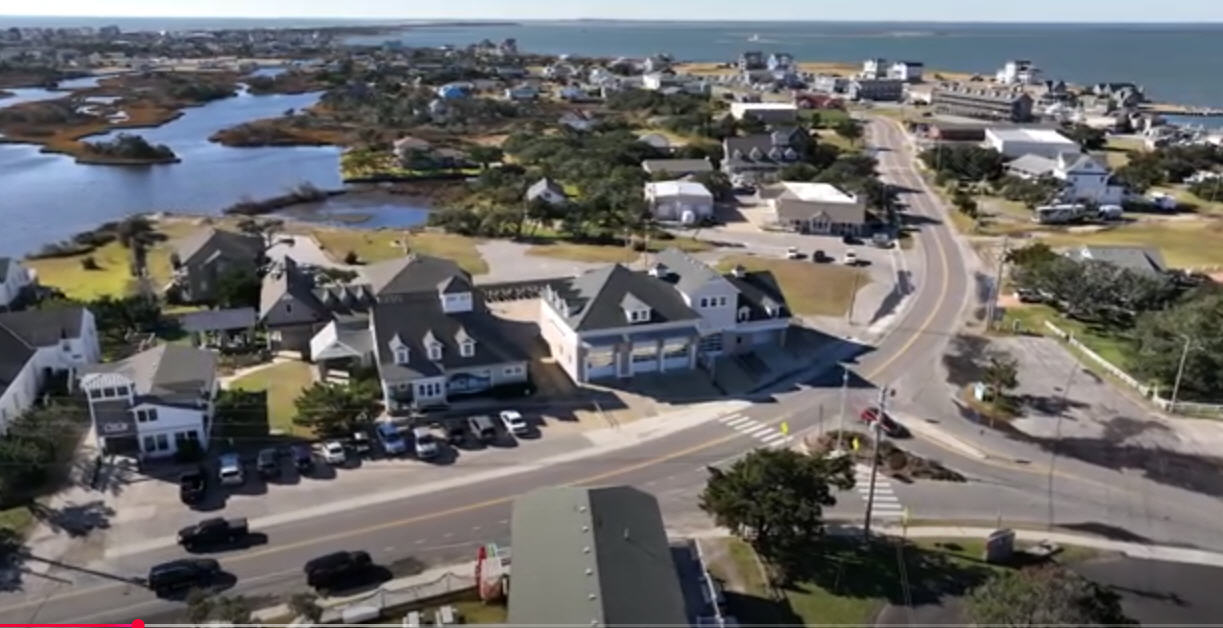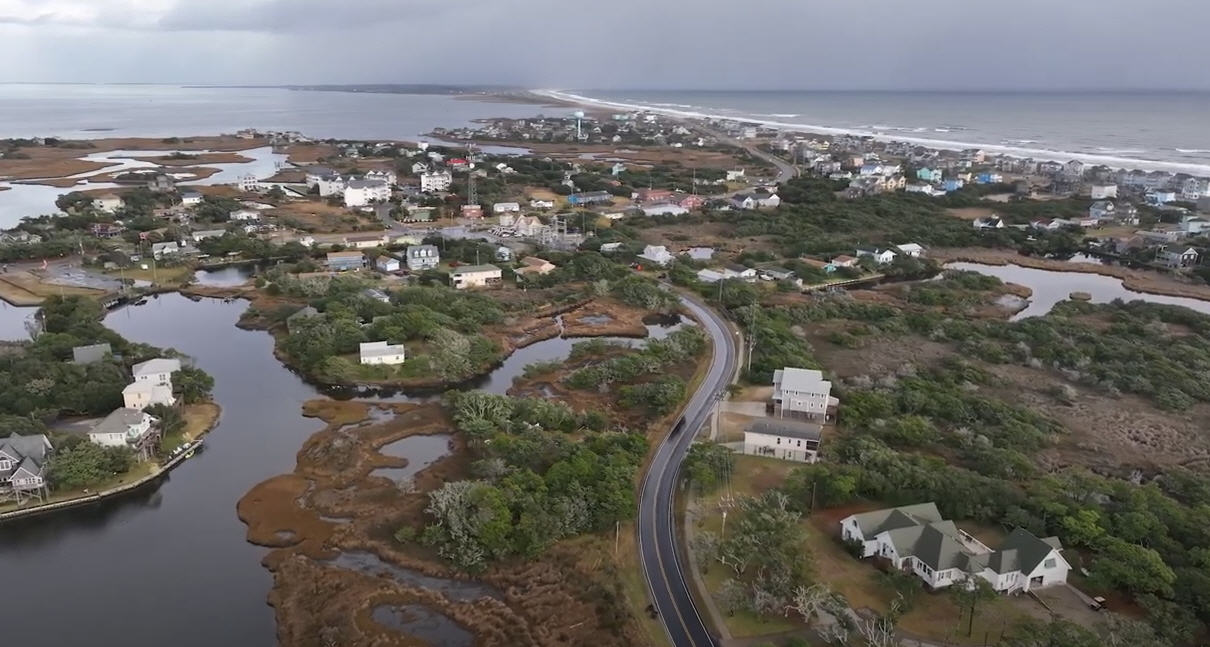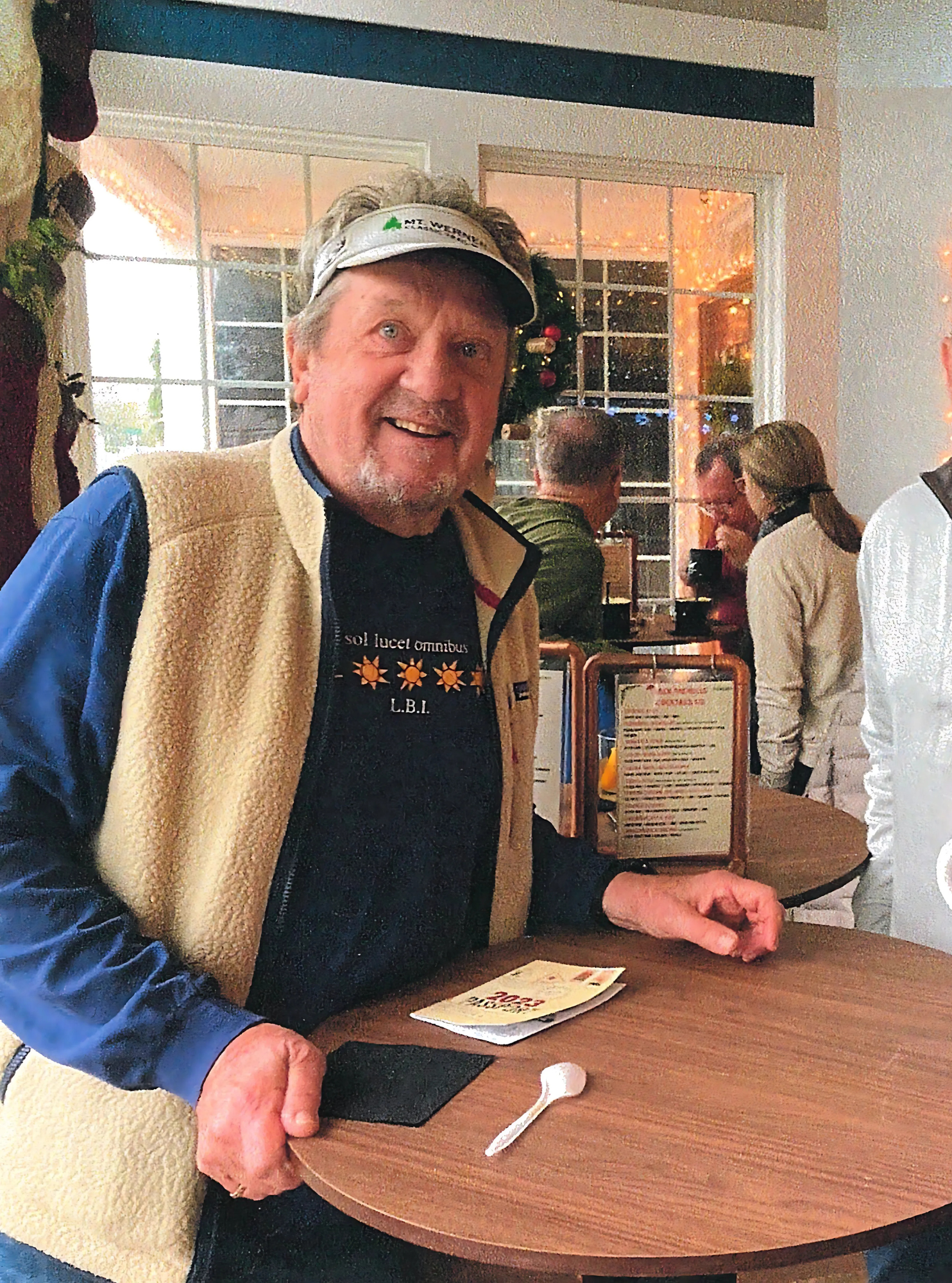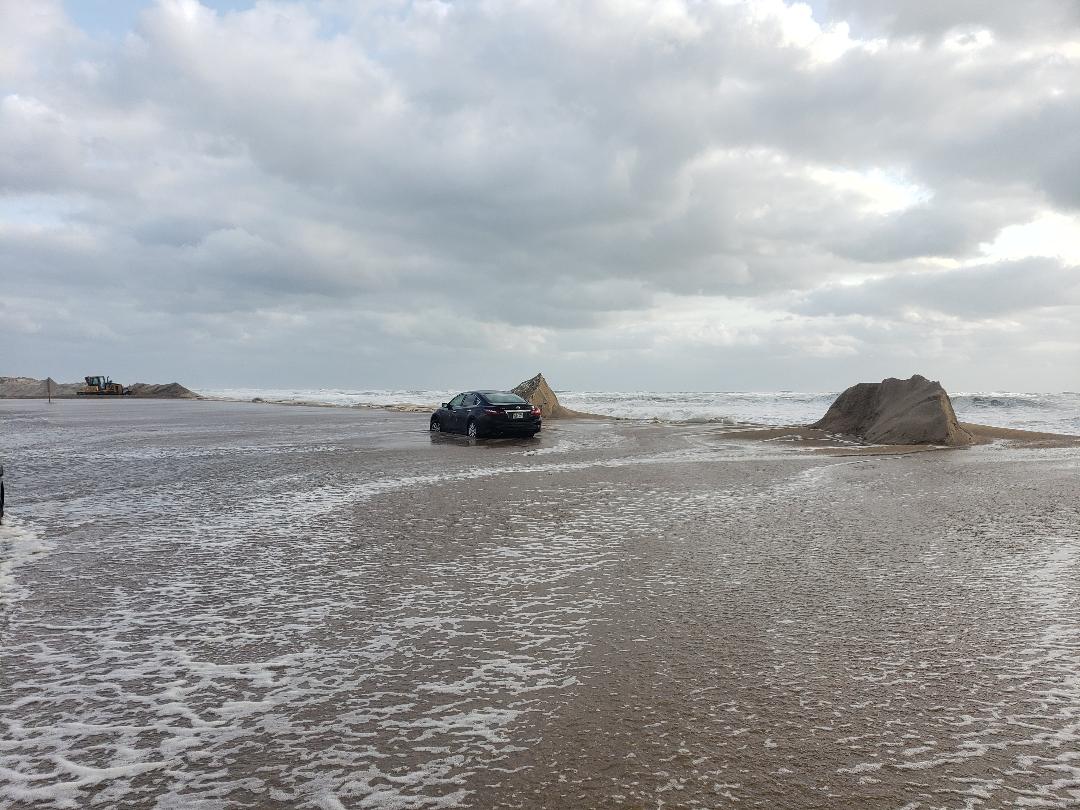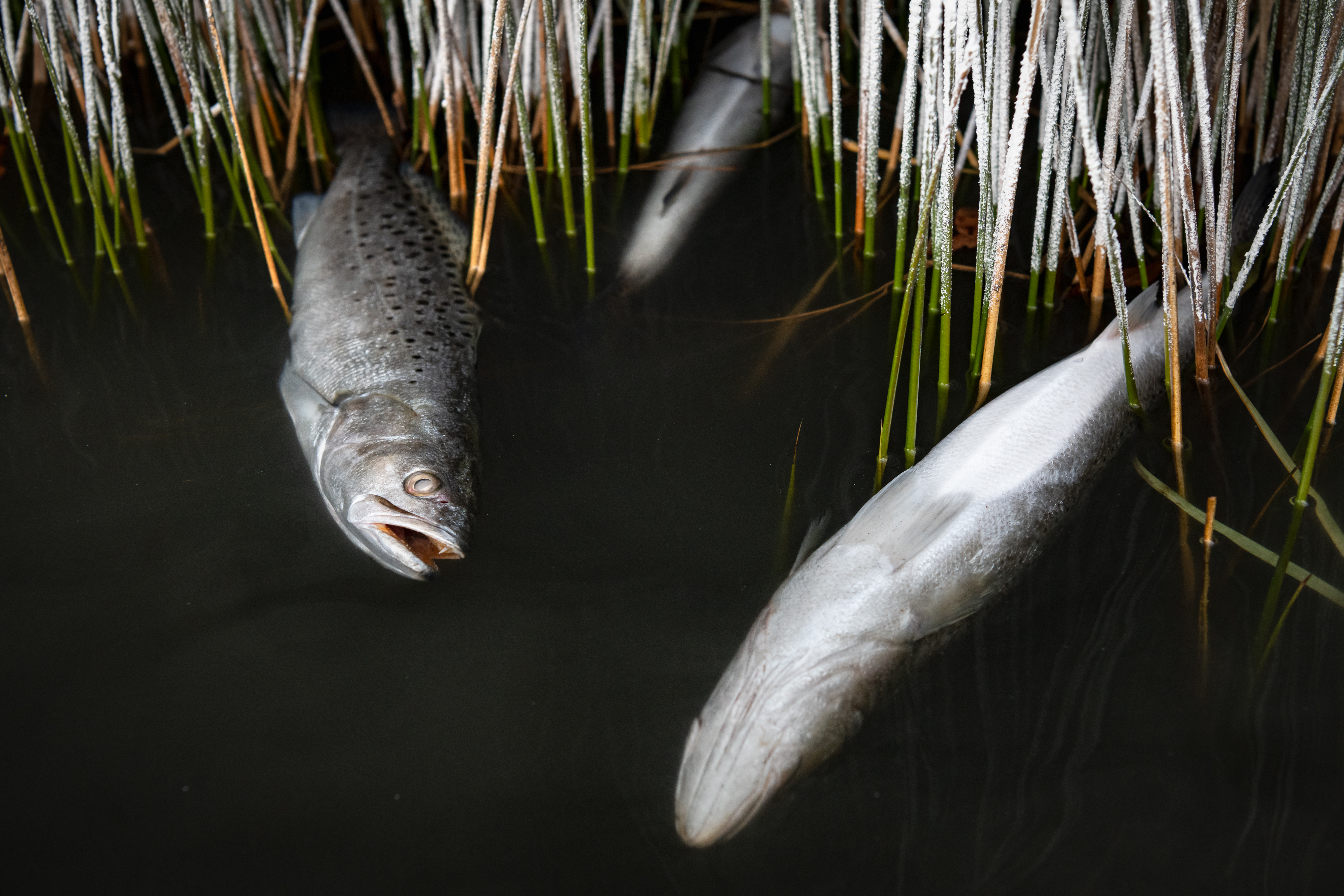Something’s in the air, not just the hair
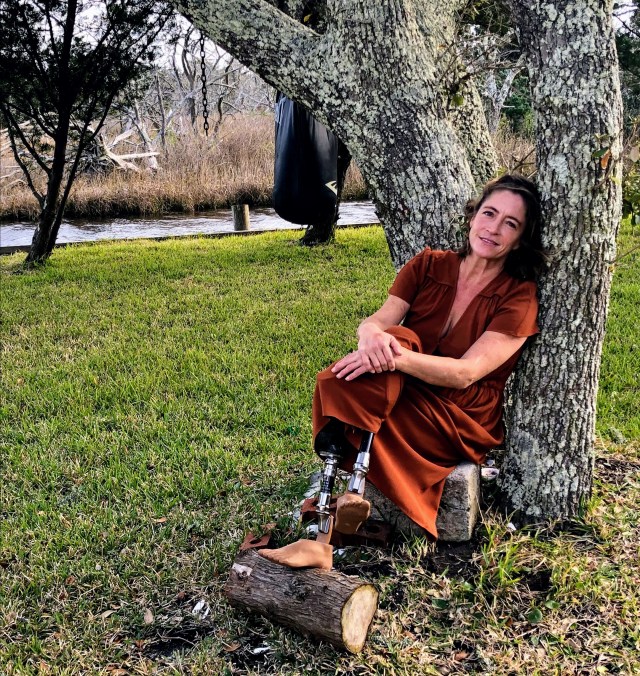
By Kelley Shinn
Ocracoke, we need to have a serious conversation—about hairspray, and other things.
Given everything we have collectively been through since Hurricane Dorian struck a year and some months ago, it’s understandable if that opening sentence makes you want to pull the covers over your head and watch Netflix instead. Nonetheless, please hear me out. Some of our lives may depend on it.
It was six months after Dorian that the COVID-19 pandemic began in earnest. Just as we were beginning to raise up out of the debris piles, finishing up the piles of paperwork which seemed as large and overwhelming as the debris—we were being introduced to the idea of another traumatic life lesson, one that came with multi-syllabic words and medical terms and restrictions we could hardly bear to hear, or try to comprehend. The tourist season was just beginning, and businesses were eager to make up for Dorian’s losses. Our working class was desperate to be able to pay their bills, and our displaced were still displaced and grieving. A pandemic that still appeared across the globe, or at least across the country, was in some ways the farthest thing from our minds.
Many frontline island workers were nervous as they anticipated tourists would be asking them to revisit the pain of Dorian, but Dorian was a disaster buried in the avalanche of divisive political atmospheres, wildfires, and multiple global calamities that continue to occur to this day—even the Bahamians, who suffered total catastrophe in the storm (70 confirmed dead and approx. 1,300 still missing) have been lost to new headlines day by day.
In late February, just before the overturned school bus was finally removed from Highway 12 in preparation for the tourist season, I was approached by two men in the parking lot at the Variety Store. One of them asked me if something had happened here. I told him yes, that we had been hit by a major hurricane six months earlier and were just finishing up cleaning the major debris. He looked at his companion and said, “I win.” Then he looked back at me and explained that his friend thought the island must be a location for some apocalyptic movie, and they’d made a bet.
A month later, there were golf carts lining the streets, well-dressed tourists with red cups in hand, children swinging newly purchased pirate swords, and instead of anyone asking about what we had gone through, many islanders found themselves in a constant battle simply begging some guests to comply with the mask rules.
It was easy to think we were inside of a magical bubble, when week after week, we saw record numbers of visitors come to the island, and no major outbreaks of COVID-19 occurred. Several isolated cases were quickly doused, though not without one member of the community being hospitalized for two weeks, which felt like an adequate warning.
Now, in the course of a few days, shortly after the tourists have all mostly gone home, we have more positive cases than we’ve had the entire nine months of the pandemic, and many more are anticipated in the coming days and weeks. When the whole world is experiencing pandemic fatigue, it is understandable that a community fresh off a climate disaster would bear an even greater exhaustion, but friends, now is the time to gird all of your reserves, even if it feels like the last of them.
I can tell you from experience that when you think you are down to your last reserves, you are often wrong. I’ve told a lot of tongue-in-cheek stories over the last three decades about how I lost my legs. Since moving to Ocracoke, it’s been a birthday treat every year to ride my bike with short shorts amongst the tourists while wearing a vintage “Jaws” T-shirt. Once they stop staring at my prosthetics and notice the shirt, it’s a double whammy for them, and a petty delight for me.
Now, in the course of a few days, shortly after the tourists have all mostly gone home, we have more positive cases than we’ve had the entire nine months of the pandemic, and many more are anticipated in the coming days and weeks.
I’ve told stories about motorcycle accidents, being a bad magician’s assistant, train tracks, and once I even blamed it on my brother and a lawn mower. Fact is, all the cockamamie stories I’ve concocted over the years don’t frighten listeners nearly as much as the truth, because the actual way I lost my legs is something that no one can rationalize their way out of—it can happen to anyone, and now with the pandemic, it’s even more of a horrifying reality.
At 16, I was a star athlete being offered college scholarships for cross country and track. I was invited to participate one weekend at a gathering at Ohio University for the best high school runners in the state. It was a highlight of my young life. Two days later, I came down with what doctors thought was the flu. When I became quickly worse, an infectious disease doctor was brought in who had an inkling that I had contracted a disease which he had not seen since Vietnam.
Test results confirmed his suspicion, and several weeks later, after my lung collapsed and I died for 14 seconds and was brought back after three defibrillations, I had both of my legs amputated due to complications from an invisible airborne pathogen—a rare form of bacterial meningitis. Many people carry this bacterium without symptoms, but for some reason, some people with a genetic predisposition get an aggressive form of the disease.
Nonetheless, everyone who had been near me in recent days had to take an antibiotic, and I was placed in a medical bubble in the ICU where medical workers came in looking like astronauts—all quite similar to the scenarios and protocols for COVID-19.
Six months after I was released from the hospital, I went to meet the doctor who diagnosed me and thank him for saving my life. I also asked him how I got the disease. Since I was a teenager and it was the ‘90s, and he was sharp, he said, “You most likely got it when you stayed in the dorm at Ohio University. You and your friends ever use Aqua Net? When you speak, or sneeze, or laugh, or expel, your mouth and nose are like the top of the Aqua Net can.
“If someone is sick, when they get close to someone else and talk, they are dousing that person with a bad dose of Aqua Net. It only takes one sick droplet, or aerosol, to make someone else sick, and look at the stream of spray when you use it! There are a lot of chances to get sick!”
Anyone who has used or seen hairspray knows how far it travels, and how quickly. Even if you’re outside and standing six feet away, and someone sprays hairspray, you can smell it. If you can smell it, it’s getting in your nose.
COVID-19 transports like hairspray. If you wear a mask, it isn’t an impenetrable forcefield. The mask simply lets smaller amounts of aerosols release at a time and in a different direction than directly toward the person you are speaking. That’s why health experts recommend staying home unless you cannot and wearing a mask at all times when you cannot maintain a distance of greater than six feet.
Leaning against someone’s truck door, even on a windy island, isn’t going to keep you from smelling the Aqua Net, and it isn’t going to keep you safe from a virus that is causing overwhelming death, long lasting effects on the heart and lungs, including in young people, and in some cases, amputations.
And consider the way Aqua Net falls to the surface—I know my bathroom sink used to be sticky when I was a teenager, and I also know it took soap and a good scrubbing to clean it up. That’s why health experts recommend you wash your hands and household surfaces frequently.
Ocracoke is just a microcosm of the rest of the world, but it happens to be one that I am proud to call home, and for whose residents I care deeply. Scientists do not yet know why some people get more aggressive cases of Covid-19 than others, but risking it isn’t like the Chicken Pox party my mom threw when I was in kindergarten so we could all get it and get it over with—as if some rite of passage. COVID-19 is a game of Russian Roulette, and no one wants the round with the actual bullet.
We have more than an ember to step on right now. We’ve got a bonfire on a windy island, and it’s never a good idea to spray Aqua Net on a bonfire. I remember when my brother sprayed Aqua Net on his fart and caught the curtains in his room on fire.
Even though I’ve forged a life of enough joy despite the hardships, please don’t risk ending up like me. Trust me, you do not want the pain that comes with this joy.
Editor’s note: Coincidentally, today’s news announced that the director of White House security just had his leg amputated following severe COVID-19 complications.
All are urged to understand how critically urgent and life threatening this virus can be. We all need to do three Ws: Wear a face covering; Wait at least six feet apart and Wash your hands frequently.
North Carolina Department of Health and Human Services Secretary Mandy Cohen, M.D., said in a recent press release: “We are on a dangerous course. Everyone–our counties and municipalities, businesses, community organizations, and every North Carolinian–must act to save lives and make sure our hospitals can care for those who need them.” (See related story here.)
Related Story: Ocracoke woman with metal legs aims to spreadher message about life with disabilities


